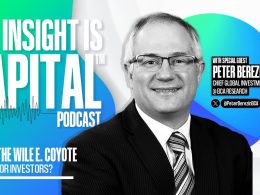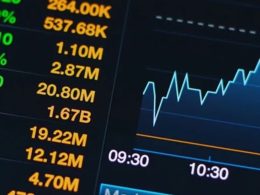by Cullen Roche, Pragmatic Capitalism
Here’s an interesting claim I see more and more often:
“The nature of ETFs and passive investment is worth noting. A vanilla S&P 500 ETF, for example, effectively puts company and sector fundamentals to one side and buys or sells 500 stocks at a time. This is fine in a rising market, but potentially dangerous in a falling market.”
The basic thinking here is that an ETF or index fund is a mindless buying and selling machine that ignores market fundamentals. So we tend to see lots of stories about how index funds and ETFs are causing this huge steady bull market in stocks and when the piper comes piping they will make the downturn that much worse. The key idea is that the product itself poses a systemic risk.
But let’s dig a little deeper because I think the fears here are vastly overstated and largely the result of misunderstanding a fairly new product and the way it works.¹ For starters, let’s look at the S&P 500. What is this index fund exactly? Well, it’s a rules based portfolio that is determined by the S&P Index Committee that attempts to reflect the large cap segment of the US equity market. It’s not just a mindless index. In fact, it has incredibly strict rules that were created by people:
- Market cap requirement of $6.1B
- Strict liquidity rules
- Domicile rules
- Public float rules
- Sector classifictions
- Financial viability
- IPO limit of 12 months
- Securities markets eligibility
These rules are changed at times based on how the committee determines them. And when a security in the index fails to meet these requirements they are sold off. Likewise, new additions are determined by new entrants that best reflect the requirement rules. These rules aren’t just fundamental. They are strictly fundamental. But we should be very clear about what’s going on here – there are people setting the rules and ultimately determining what the S&P 500 is comprised of. If you weren’t blinded by the fake “active vs passive” dichotomy you’d look at this index fund and say it was a low fee active fund which is exactly what it is.² Okay, so we can put aside this idea that an index fund “effectively puts company and sector fundamentals to one side”.
What about this idea that ETFs and index funds are more dangerous during bear markets? We’ve had some pretty big bear markets in the last 15 years and the share of active managers who beat the index does not support this claim:
- 2001: 35%
- 2002: 32%
- 2008: 44%
Said differently, you actually did worse owning a more active fund during these big bear market years. These more active managers with their supposedly better fundamental analysis did worse than the mindless index fund. Weird, eh? The main reason for that is that the index funds are following a rules based fundamental approach whereas many of the more active managers are managing the portfolios with discretion. When a bear market sets in the S&P 500 index doesn’t sell positions based on what the index committee thinks about Kim Jong Un, Quantitative Easing, the month of the year, Santa Claus rallies or any of the other insane things that managers sometimes consider. They rebalance to match the current market cap of the underlying index as it pertains to their rules based approach. And they make changes when the rules require them. If anything, this is a much more stable way to manage an investment fund since it results in less emotion, less discretion and lower turnover.
Now, what ETFs and Index Funds don’t do is stop the actual owners from overreacting. With your traditional mutual funds the majority of the systemic risk comes from the bad behavior of the fund managers who typically buy high and sell low. With ETFs and Index Funds there are more and more individual owners of assets who are playing the role of portfolio manager. Will they respond better than the average portfolio manager when the sh*t hits the fan? I seriously doubt it. But again, don’t blame the product for the product user’s mistakes. As we saw during the flash crash of 2015 these ETFs operated EXACTLY as they were supposed to. But many people overreacted due to sheer emotion.
¹ – I should be even more blunt. These fears are being spread mainly by high fee active managers whose lunches are being eaten by these low fee funds.
² – Sadly, the S&P 500 isn’t always low fee. There are actually firms that sell this index at egregiously high costs.
Copyright © Pragmatic Capitalism















